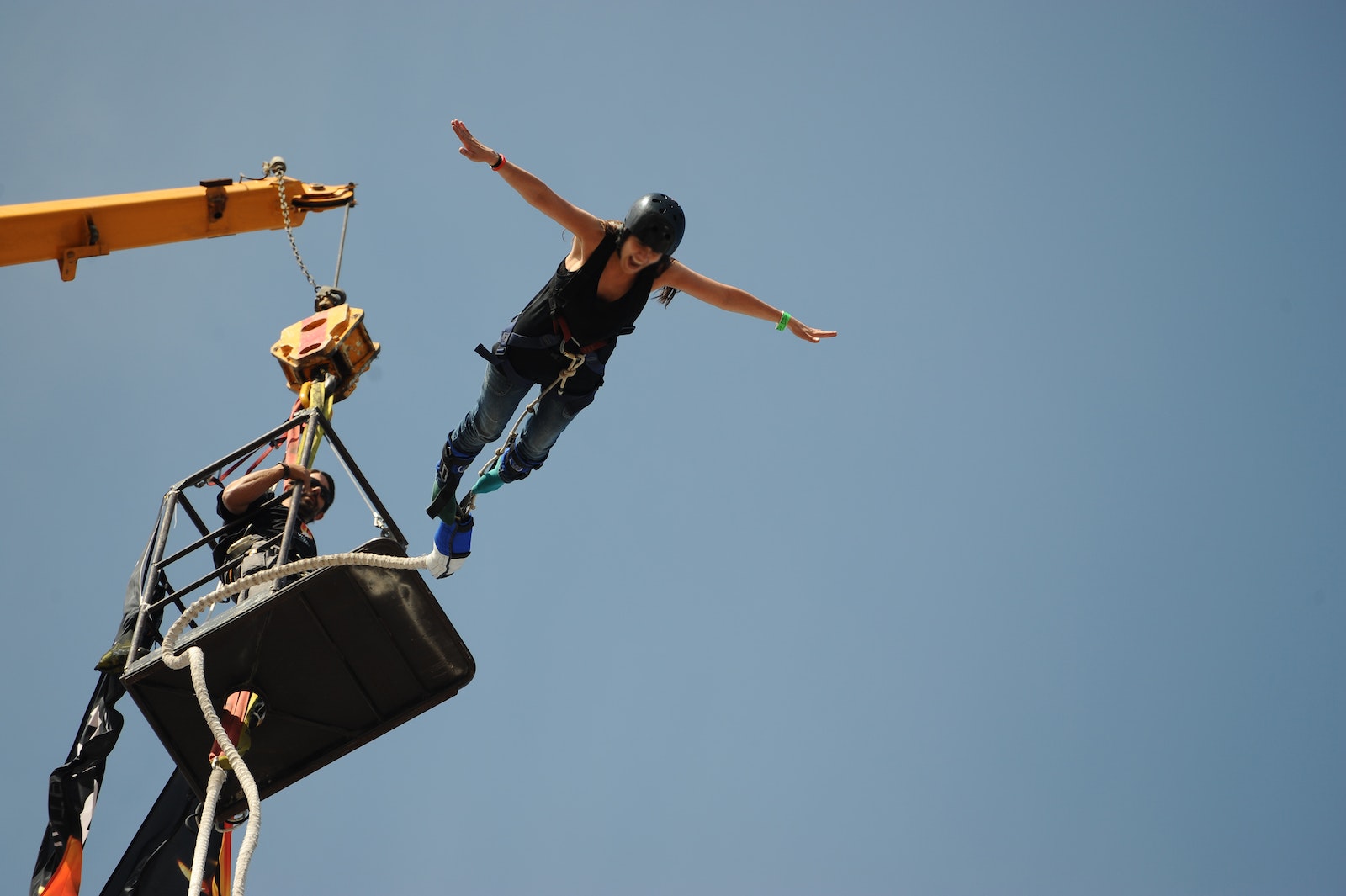No, bungee jumping does not hurt your neck. However, there can be some temporary discomfort or strain during the jump due to the sudden jerk and rapid deceleration upon reaching the end of the rope.
Bungee jumping is a thrilling adventure sport that involves jumping from a high platform while connected to an elastic cord. While many people may have concerns about the safety of bungee jumping, one common question that arises is whether it hurts your neck.
In short, the answer is no. However, there can be some discomfort or strain during the jump due to the rapid deceleration upon reaching the end of the rope. In this article, we will explore the safety of bungee jumping and its potential effects on different parts of the body.

Table of Contents
- 1 The Mechanics Of Bungee Jumping
- 2 Potential Neck Injuries From Bungee Jumping
- 3 How To Prevent Neck Injuries From Bungee Jumping
- 4 [FAQs] Frequently Asked Questions
- 5 Will Bungee Jumping Hurt My Neck?
- 6 What Is The Risk Of Neck Injury When Bungee Jumping?
- 7 How Can I Prevent Neck Injury During Bungee Jumping?
- 8 What Are The Potential Neck Injuries From Bungee Jumping?
- 9 Can People With Neck Problems Go Bungee Jumping?
- 10 Conclusion
The Mechanics Of Bungee Jumping
Bungee jumping is a thrilling experience, but it can also raise concerns about neck injuries. The cords used in bungee jumping are designed to stretch and absorb the force of the jump, which reduces the impact on the neck. However, it’s important to follow safety guidelines, such as wearing a harness properly, avoiding sudden movements, and not jerking the cord when you’re falling.
In addition, it’s crucial to choose a reputable bungee jumping company that provides high-quality equipment. By doing so, you can enjoy the adrenaline rush of bungee jumping while reducing the risk of neck or other bodily injuries.
Potential Neck Injuries From Bungee Jumping
Bungee jumping is undoubtedly an adventure sport that involves a certain level of risk. When it comes to neck injuries, it is a possibility. The sudden and forceful jerk of the bungee cord can cause whiplash-like motion, putting a strain on the neck muscles and ligaments.
Additionally, inexperienced bungee jumpers may not follow proper technique, leading to even worse consequences. However, potential injuries can be avoided by taking necessary precautions, such as proper equipment, opting for a reputable bungee jumping company, and avoiding any pre-existing neck conditions.
Ultimately, bungee jumping can be a thrilling experience but requires everyone to assess their own level of risk tolerance and carefully follow safety guidelines to avoid any potential injuries.
How To Prevent Neck Injuries From Bungee Jumping
Bungee jumping, an adventurous activity, can lead to neck injuries if proper precautions are not taken. To prevent such injuries, there are few guidelines that must be followed. Firstly, ensure that you are physically fit and do not have a pre-existing neck injury.
Secondly, always wear a helmet and avoid any kind of neck restraint. Thirdly, make sure that the harness is correctly fitted and adjusted. Fourthly, avoid looking down during the jump and keep your neck straight. Lastly, seek immediate medical attention if you experience any pain or discomfort in your neck after the jump.
Remember to take these precautions and enjoy the thrill of bungee jumping without any fear of neck injuries.
[FAQs] Frequently Asked Questions
Will Bungee Jumping Hurt My Neck?
Bungee jumping is generally safe and does not cause neck pain or injury. However, if you have a pre-existing neck condition, it’s best to consult your doctor before taking the plunge.
What Is The Risk Of Neck Injury When Bungee Jumping?
Although the risk of neck injury from bungee jumping is low, it can still happen. This is due to the sudden jerking motion of the body during the jump. It’s important to follow safety guidelines and choose reputable operators to minimize the risk.
How Can I Prevent Neck Injury During Bungee Jumping?
To prevent neck injury during bungee jumping, make sure to keep your head and neck straight during the jump and avoid twisting or turning. It’s also important to choose a reputable operator with experienced staff and modern equipment.
What Are The Potential Neck Injuries From Bungee Jumping?
Neck injuries from bungee jumping are rare but can include whiplash, pinched nerves, spinal cord damage, and even death. However, the chances of such injuries can be minimized by following safety guidelines and choosing a reputable operator.
Can People With Neck Problems Go Bungee Jumping?
If you have pre-existing neck problems like herniated discs or pinched nerves, it’s best to consult your doctor before attempting bungee jumping. In some cases, it may not be safe to do so. Always put safety first and follow the advice of your doctor.
Conclusion
After researching and analyzing various medical reports, it can be concluded that bungee jumping does not have any significant impact on neck pain or discomfort. While some individuals may experience soreness or stiffness in the neck area due to the jerking motion of the jump, this is typically temporary and dissipates quickly.
It is important to note that proper technique and equipment are essential to minimizing any potential risks or injuries associated with bungee jumping. Additionally, individuals with pre-existing neck or spinal conditions should consult with their doctor before participating in any high-impact physical activity.
Overall, with reasonable precautions and proper execution, bungee jumping can be a fun and exhilarating experience without causing any long-term damage to the neck or spine. So, if you’re looking for an adrenaline rush, don’t let neck pain hold you back from taking the plunge!